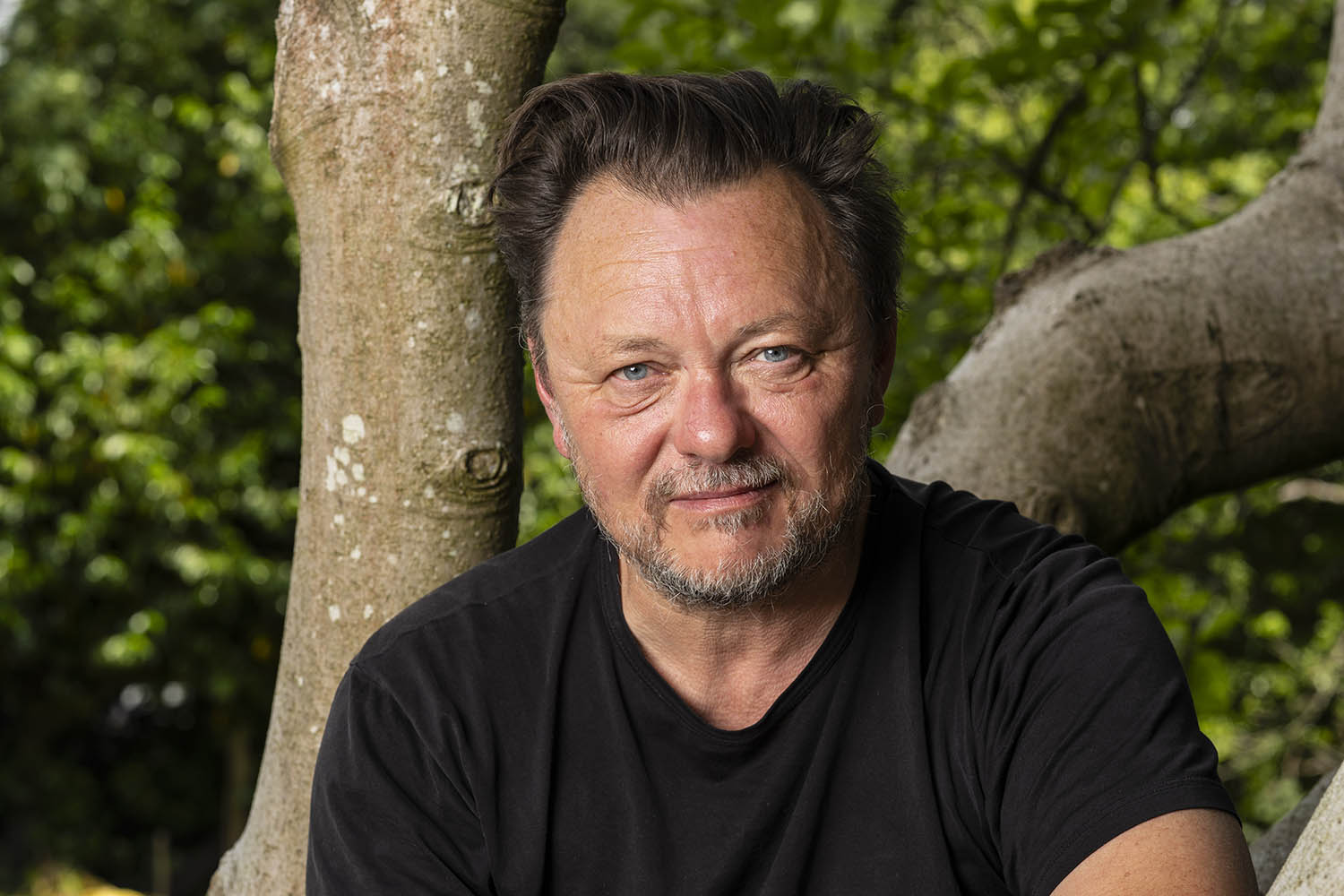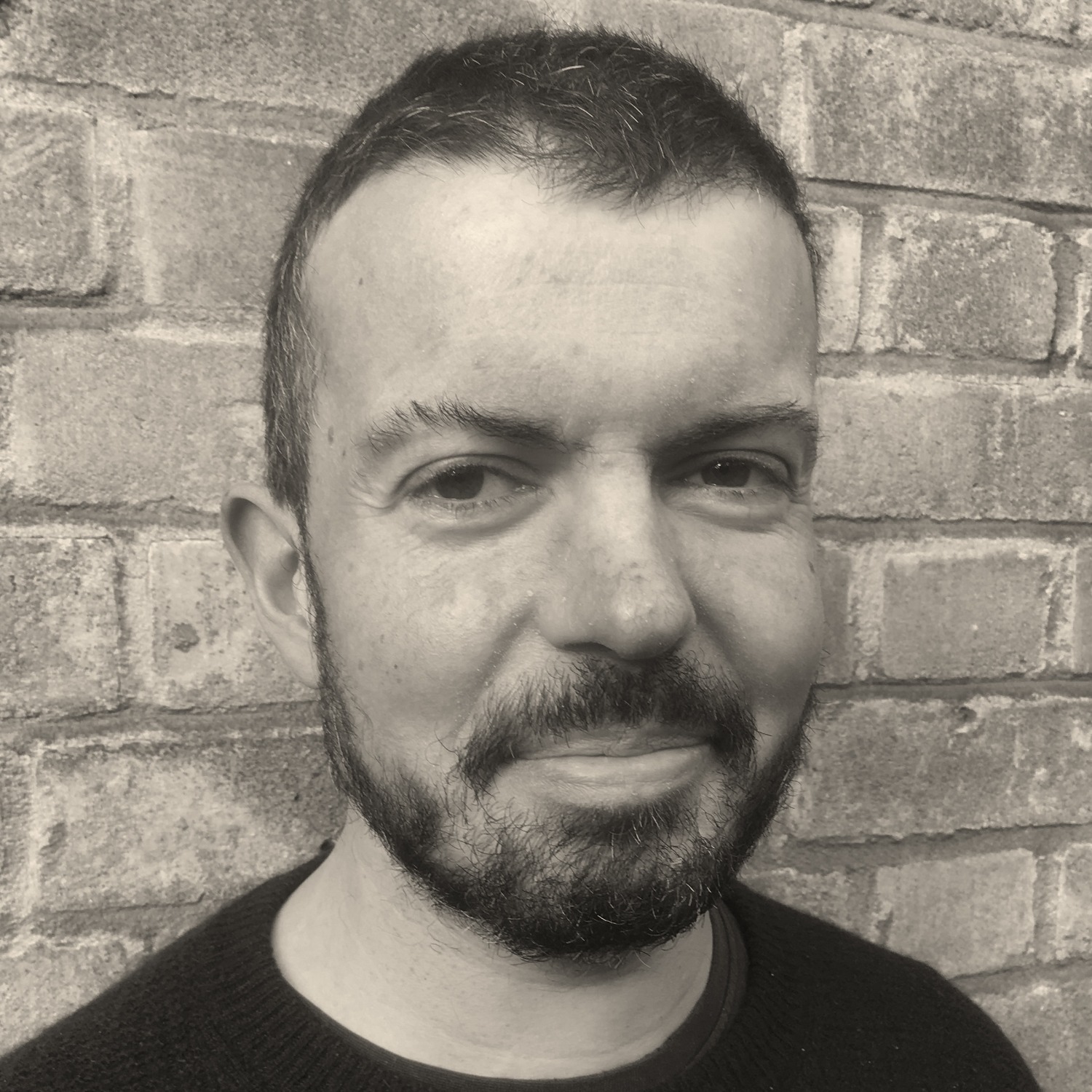Photography by Antonio Olmos for The Observer
John Niven, 59, was born in Ayrshire and lives in Buckinghamshire. His novels include Straight White Male (2013) and Kill Your Friends (2008), which drew on his time in the music industry and was described by the Guardian as “American Psycho meets The X Factor”. Niven’s new book, The Fathers, his first since O Brother (2023), a memoir of his brother’s suicide, is a dark comedy sparked by a cross-class encounter on a Glasgow maternity ward.
How did this novel come into being?
I’ve been trying to talk my wife into moving back to Glasgow. I couldn’t sell the weather, but we’d been spending more time there and I was amazed to recall how close the luxury of the West End is to places like Partick and Whiteinch, which are much more deprived in parts. That idea of class conflict – two star-crossed men from different sides of the tracks – is always fun to me.
What attracts you to writing comedy?
A lot of literary fiction reads very safe and easy to like. Comedy is funny when it goes somewhere dangerous, where you’re giving your protagonists permission to think and say utterly dreadful things. I’m a big Martin Amis fan and I’ve always leant towards making people laugh in that way: transgressing the boundary of good taste with reprehensible characters. The danger [for a writer] is that people think it’s awful; you also run the risk of not being taken seriously.
After your memoir, was it a relief to get back to fiction?
I’d rather write The Fathers 10 times than write one O Brother again. Not for emotional reasons; I just find the voice of nonfiction very difficult to sustain. You’re using the first-person pronoun so often that it’s like listening to yourself tell a dinner party anecdote that goes on for six months.
Are readers still getting in touch about O Brother?
All the time. Sometimes they just want to share their stories. Now and again they’re trying to write their own book about what happened to them and they’re asking for advice. You have to be polite and hope that if they have a story to tell, it gets heard. I did a tour and there were summer nights in hot halls where you could see 30 people waiting in the signing queue as somebody gets into the fourth or fifth minute of their own story. As a human being, you’re constantly really sorry and don’t want to be rude; there’s also 30 people waiting. But it’s a nice problem that people feel they can share these things with you.
What’s your writing routine?
When I was younger, I was a night-time guy: you’d have a few drinks and get going. Now I like to get to the desk by 7.30am if I can.
Tell us what you’ve been reading lately.
Irvine Welsh’s new book, Men in Love. It’s fun – like getting to hang out with a vituperatively abusive and very cynical old mate. I’m also reading a really bad spy novel for a movie adaptation; I’m not going to name it but you can see why it would make a good movie.
What first got you into books?
My mum. She’s a voracious reader even now, at 82. She’ll pick up everything: Elmore Leonard, James Patterson, Dostoevsky, Mills & Boon, it’s all just reading fuel – she’s never without a book. When I was five, she took me to the library, and from then on I was never the same. She taught me to read before I went to school, I guess because I was the first child. My brother came along a couple of years later but I had her to myself those first few years. I remember Harry By the Sea [by Gene Zion], about a wee dog that gets lost at the beach; I could read that when I was about three and a half.
You left the University of Glasgow, where you studied English, to work at record labels for 10 years. Did music seem more exciting then?
I was in a band and thought I just had to do something that would get me to Glasgow and then in a few years I’d be a rock star. That was the idea from when I was about 15 to 22, but it wasn’t like I rejected books and rediscovered them; on the tour bus, all the guys in the band would always be sitting with a novel. Amis’s Money coming out when I was 18 was what made me want to be a writer, but at that age I just wanted more to be a guitarist in a successful band.
Were there other important books for you at that time?
I remember Iain Banks’s The Wasp Factory [1984] coming out in my first year at university, Bret Easton Ellis’s Less Than Zero the year after, and Ian McEwan’s The Cement Garden [1978] not long before. Novels by young guys were expected to be transgressive. I guess that shapes your taste; I wrote one myself. Kill Your Friends feels crude to me now, technically, I mean – obviously a lot of people found it crude [laughs]. First-person novels by young men are often howls of rage that the world doesn’t line up how you’d like it to. Getting the voice right goes a long way to making those books work, but convincing first-person “voice novels” get rarer as writers get older, I think.
Name something you need in order to write.
It used to be cigarettes, but I quit last December. It’s weird. I always thought that if I quit, I’d just want a cigarette the first time I had a glass of wine, but the only time I occasionally miss it is when I’m writing. When you get stuck on a plot point, you go out and walk in a circle and smoke and it’s like: ‘Aha!’ It accelerates your thinking process a little, but it’s also killing you, which isn’t ideal.
The Fathers is published by Canongate (£18.99). Order your copy from The Observer Shop for £17.09. Delivery charges may apply
Newsletters
Choose the newsletters you want to receive
View more
For information about how The Observer protects your data, read our Privacy Policy

